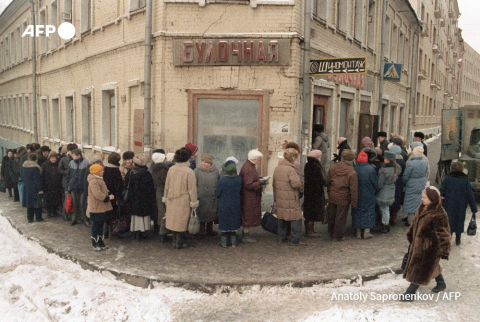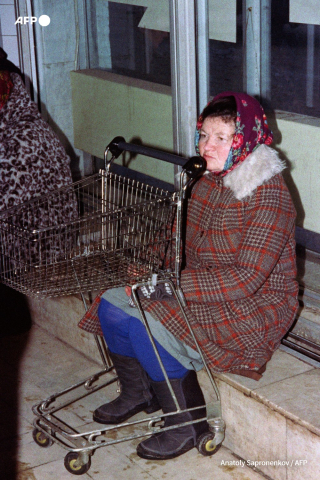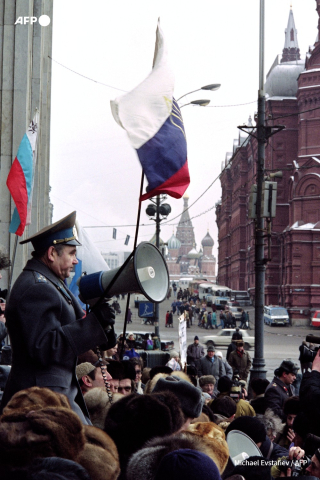Yeltin reforms plunge Russians into poverty

The market reforms begun by Russian President Boris Yeltsin in January 1992 were painful for a people who had already endured shortages of all kinds as well as a disastrous drop in their living standards.
This is an account, based on AFP copy, of the turbulent beginnings of post-Soviet economic reforms, with the lifting of price restrictions driving millions into still deeper poverty and badly tarnishing the image of the new master of the Kremlin.
- Chaotic first day -
Confusion reigns on the first day of that prices are freed up in Russia as in the rest of the Commonwealth of Independent States (CIS). Shops are either closed, empty or only partially stocked. Some prices have been freed up, and others not. And the authorities do not know what is going on on the ground, AFP reports on January 2.
"Nobody knows anything." The same message echoes from customers to salespeople, from officials to television journalists.
"Why are you asking me for the prices? How I am supposed to know?" rails an aide to the mayor of Moscow into his phone.
Some shops are open and are stocked with goods. While some have stuck to the old prices, most have already changed their stickers. Some try to introduce a price increase gently "to not scare off the customers", while others immediately raise the bar very high. Bakeries are already charging three times more for bread.
- Spiralling prices -

On January 5, AFP writes: "Four days of the experiment and already bitterness has set in. For the Russian population and that of the other republics of the CIS which have been forced to follow the exercise, the pill of freely floating prices is harder to swallow than they imagined."
Prices have been multiplied by three, four or 10, but the shops remain desperately empty.
Sour cream, a favourite foodstuff in the former Soviet Union, is going for such a price -- up to 150 roubles - that it goes off because nobody can afford it.
In Moldova, the "Moloko" firm has even resorted to processing unsold sour cream into butter, which is not selling well either due to its high price.
Popular discontent is already surfacing.
News agencies describe rising tensions. At Yakutsk in Siberia, the taxi company has set the price per kilometre at 3.60 roubles, with a minimum take of 84 roubles per day for drivers. But attacked and insulted for the hikes and unable to find customers, the taxi drivers have gone on strike.
In Moldova and Ukraine governments have had to defend their position in parliament.
- Yeltsin: From hero to zero -

The freeing up of prices has sounded the death knell for the honeymoon enjoyed by Russian President Boris Yeltsin, says an AFP story datelined February 7.
By tipping the big majority of the Russian population below the poverty line, it has dealt a heavy blow to confidence in Yeltsin.
With inflation officially estimated at 400 percent in January, shops empty and economic reforms failing to make headway, Yeltsin's image has been tarnished to the extent that the hero of the August coup is now caricatured in the newspapers.
The last issue of the weekly Kommersant lashes out at his new "passion" for overseas travel and shows him in a cartoon wearing Brezhnev-era military medals on his chest and the birthmark of his predecessor Mikhail Gorbachev.
The people, overwhelmed by reports of the chaos caused by the switch to a market economy, have reacted by turning away from politics.
